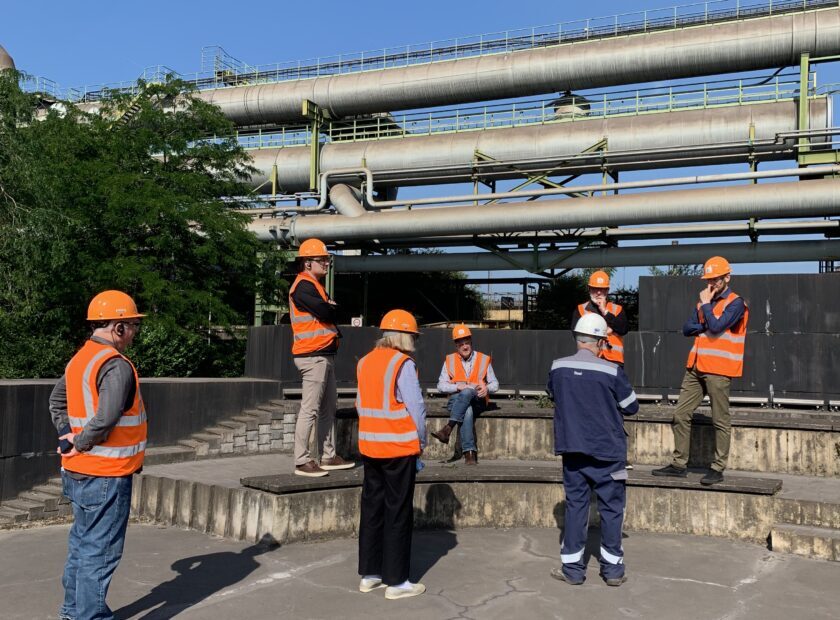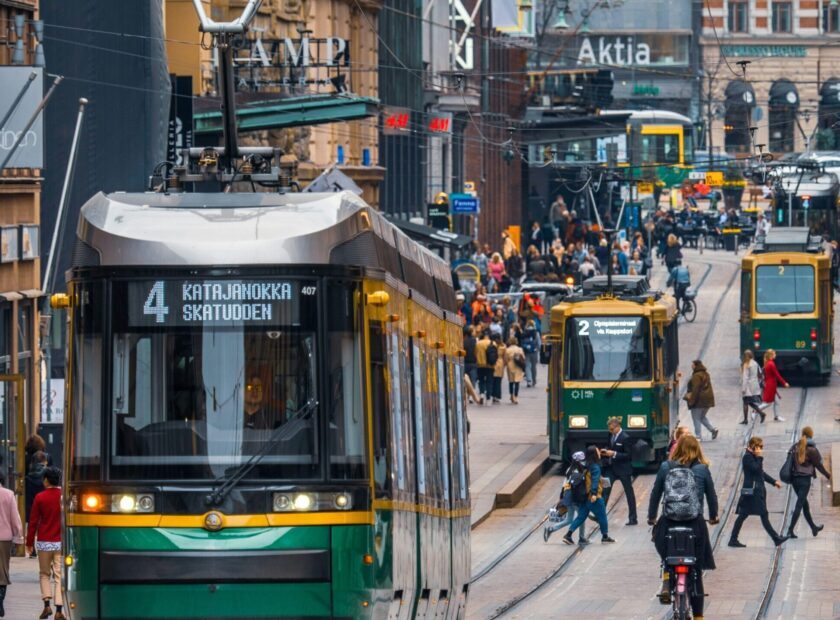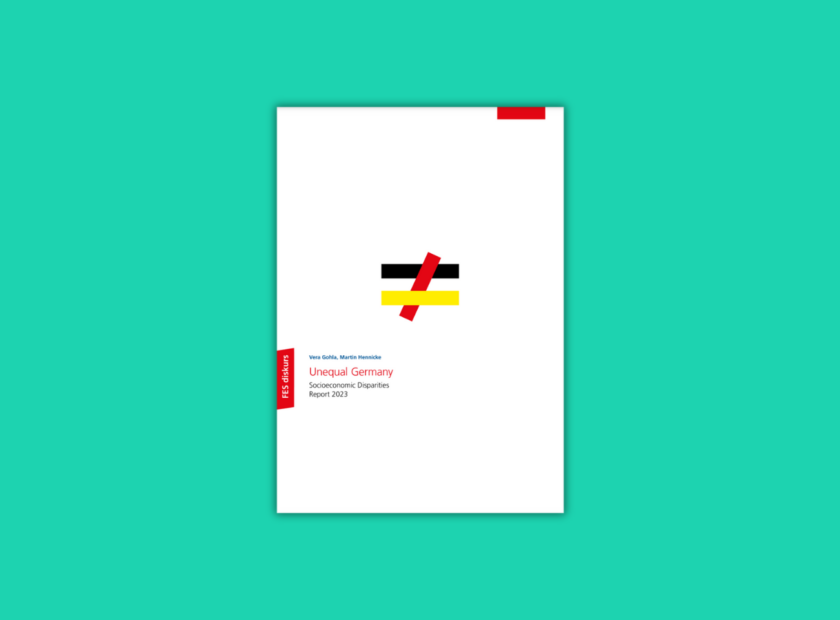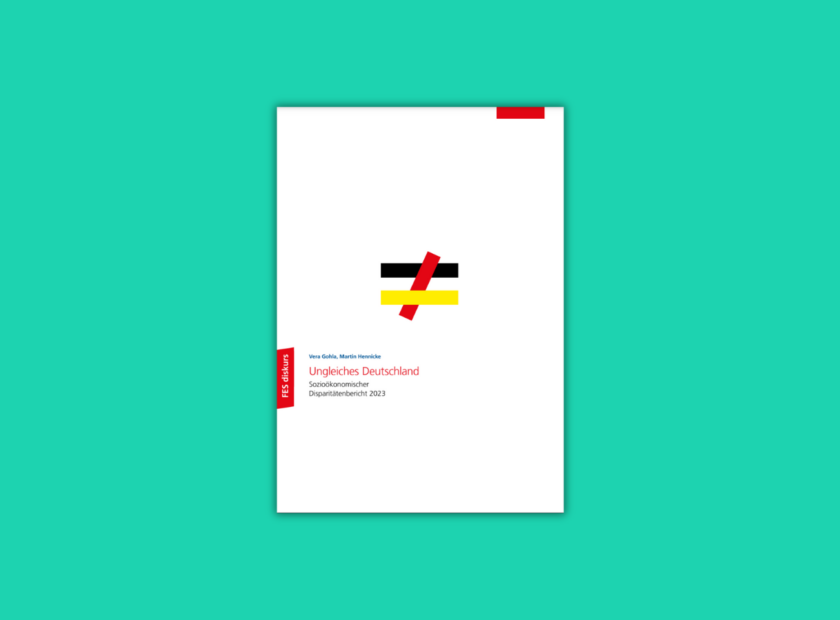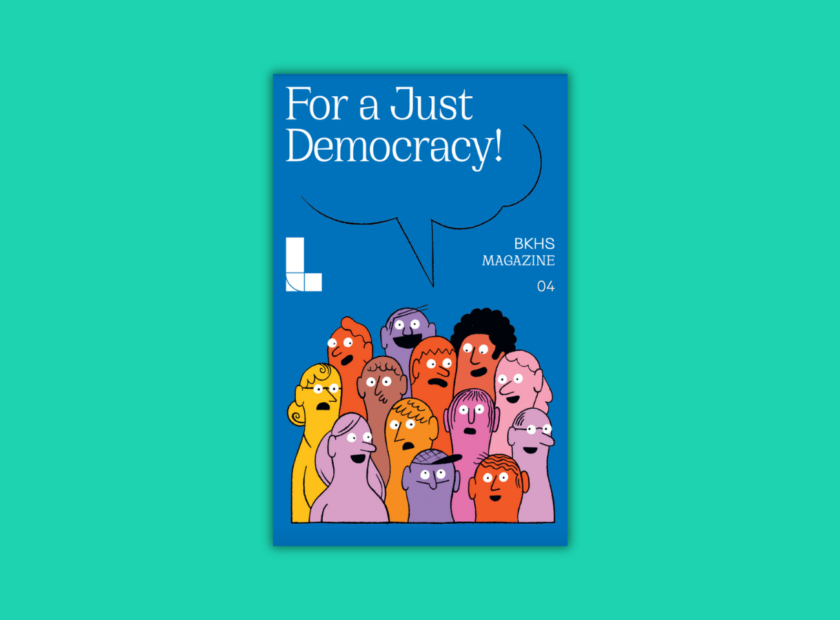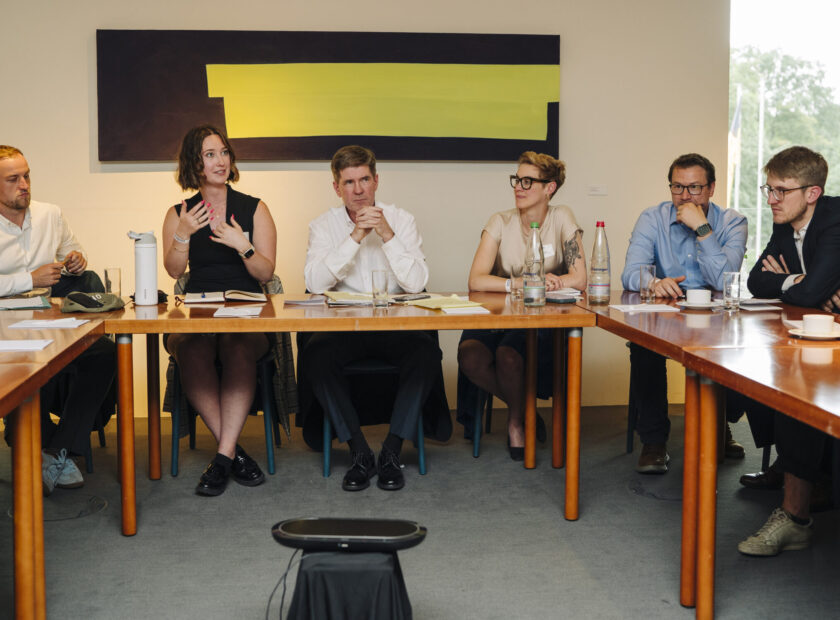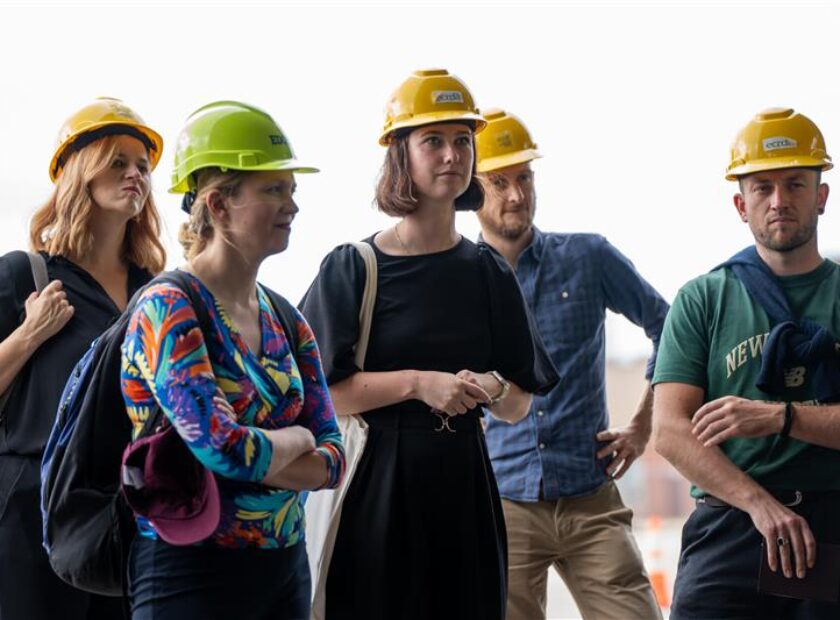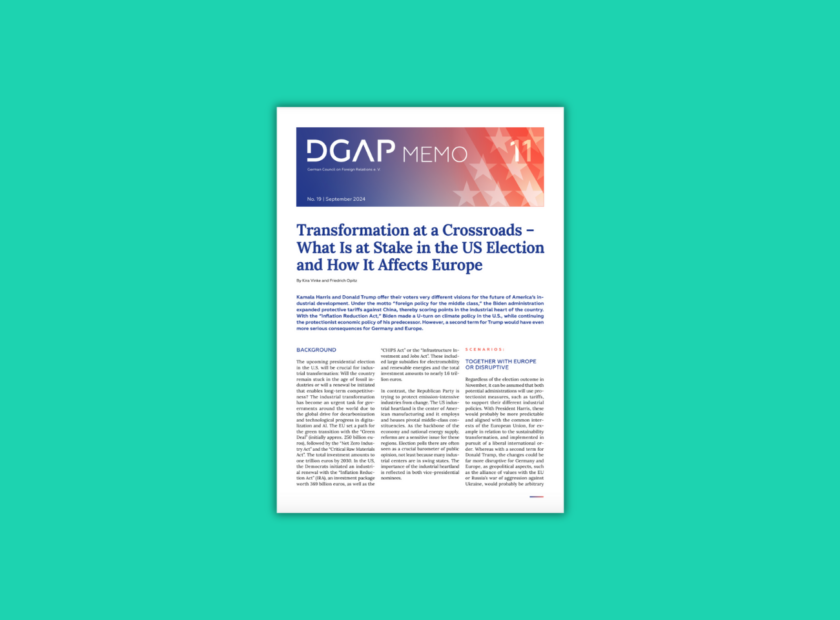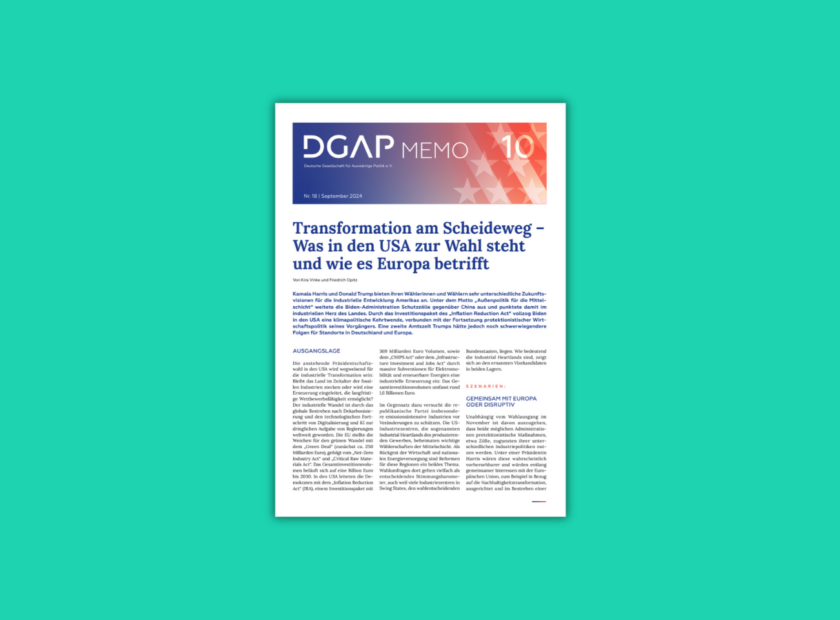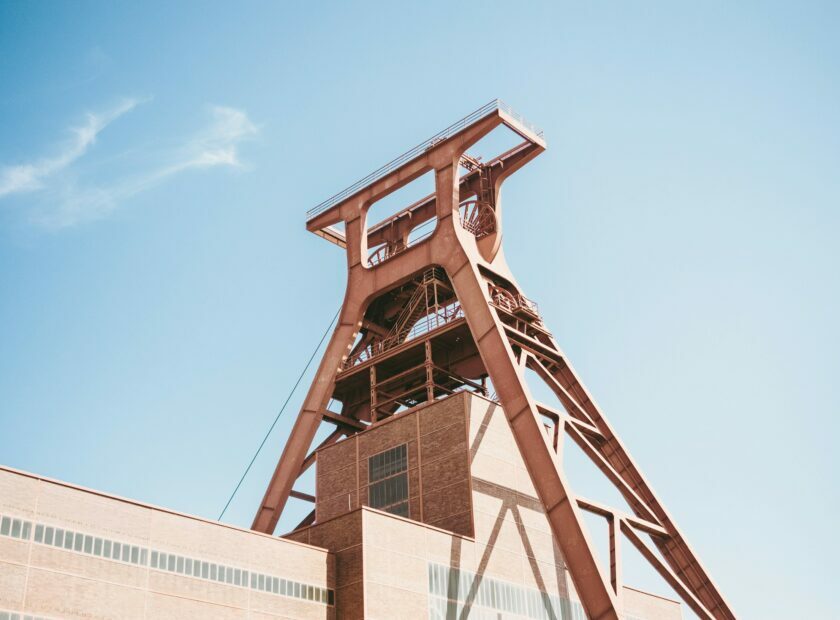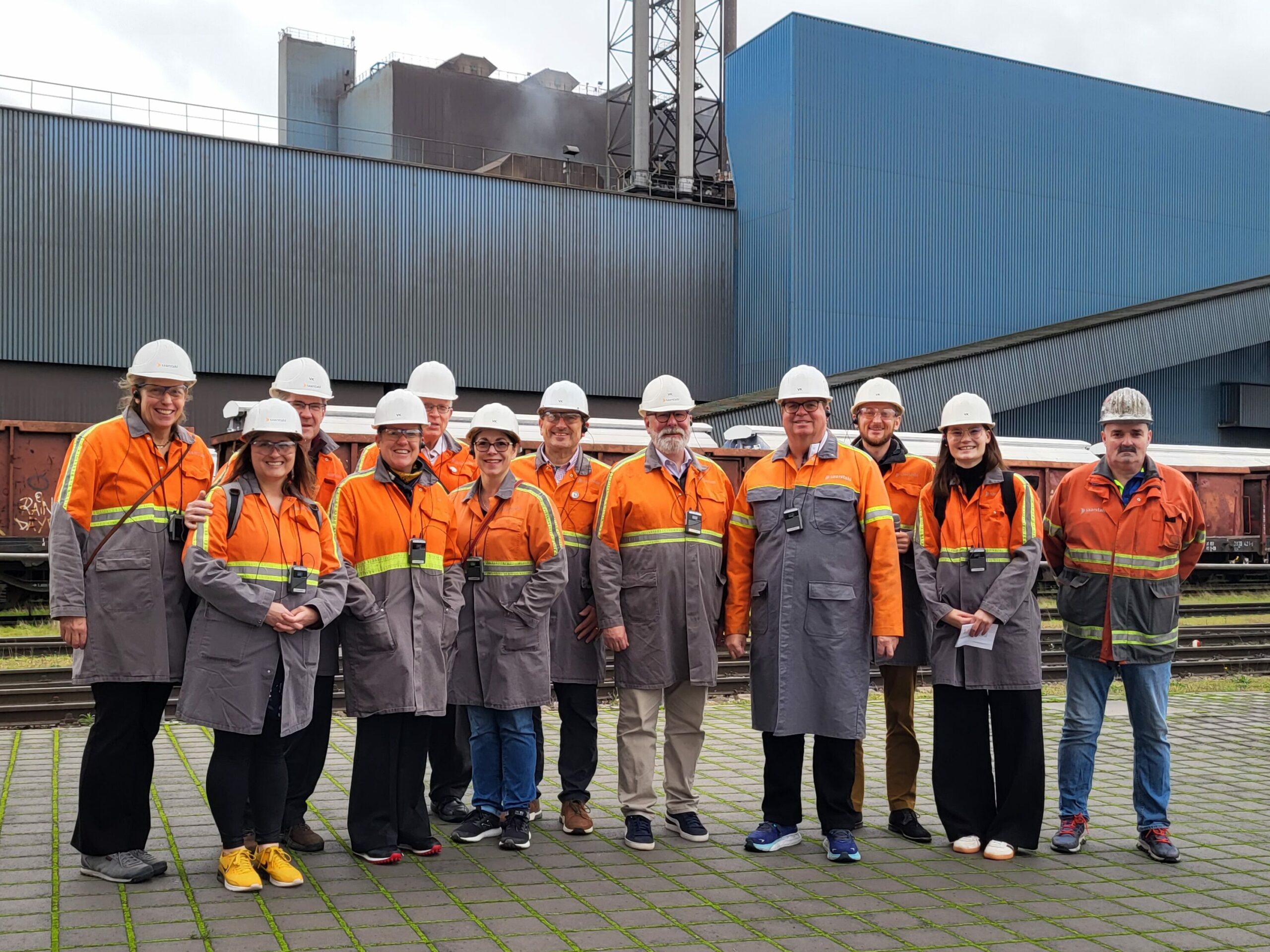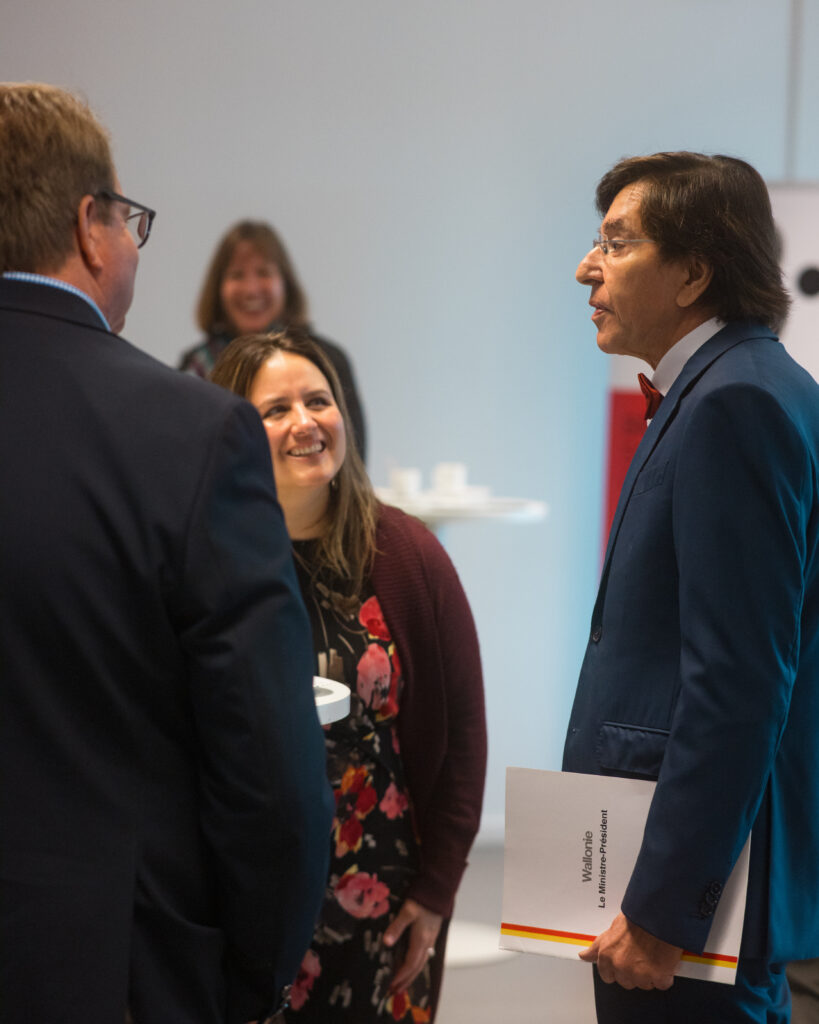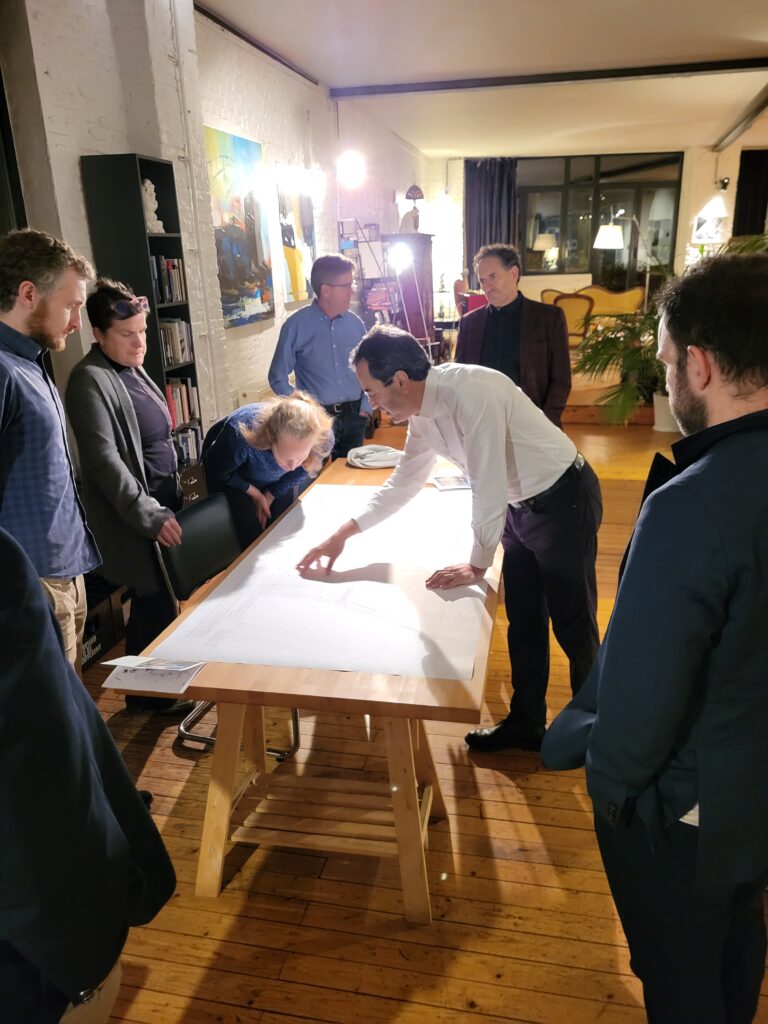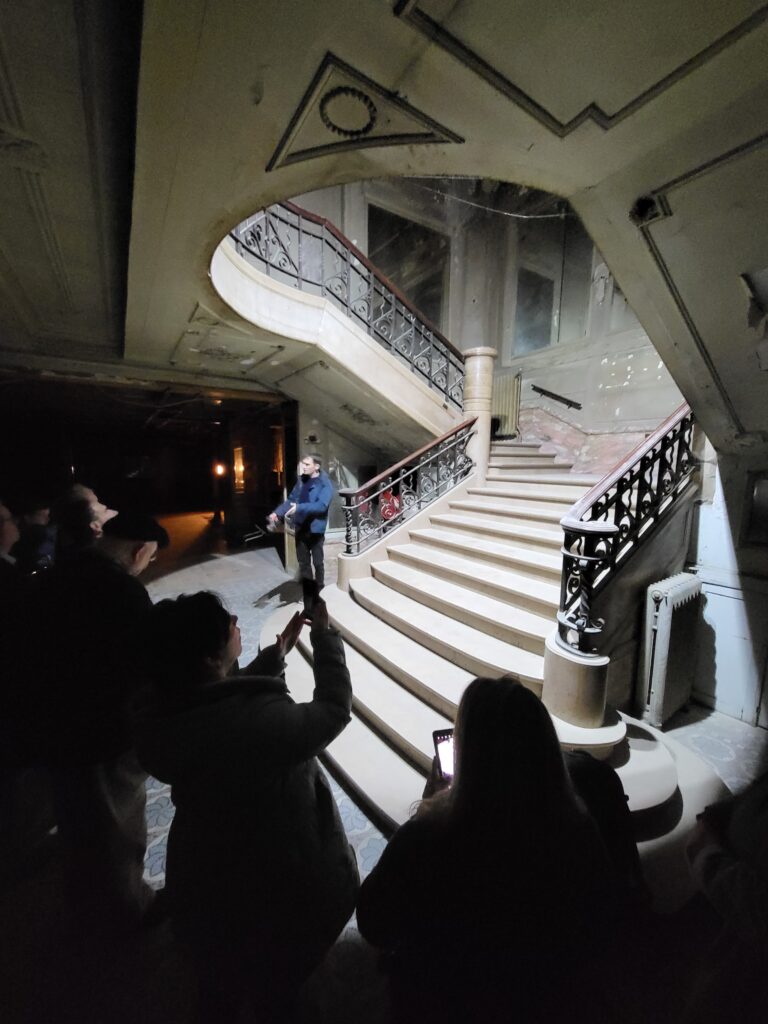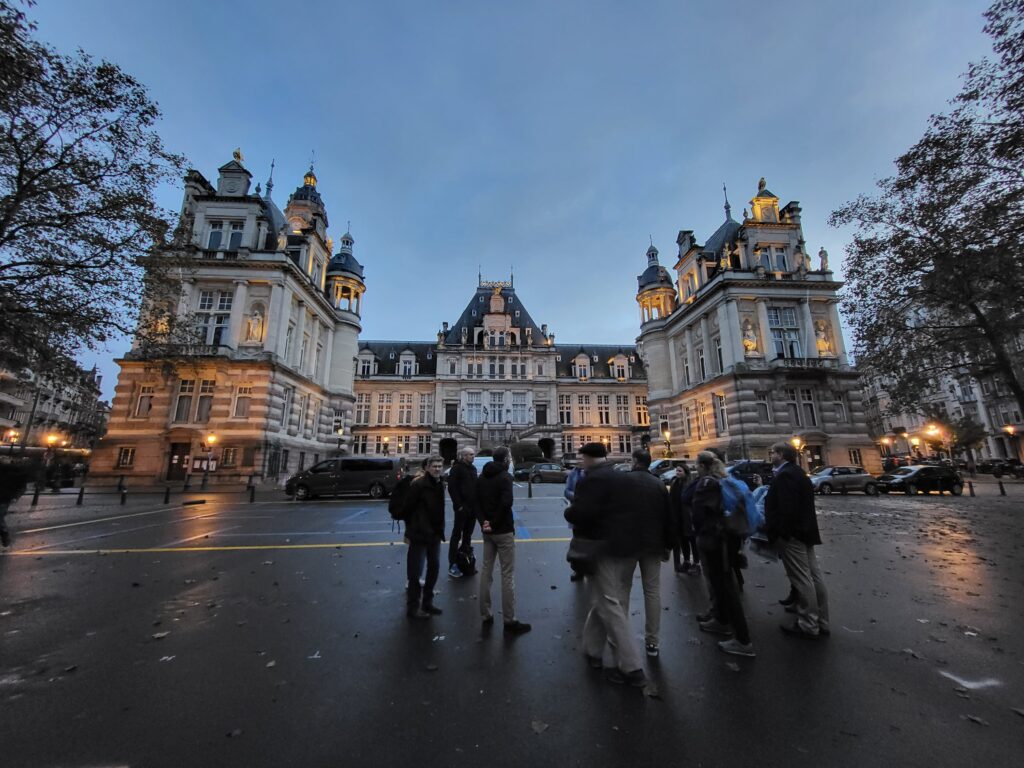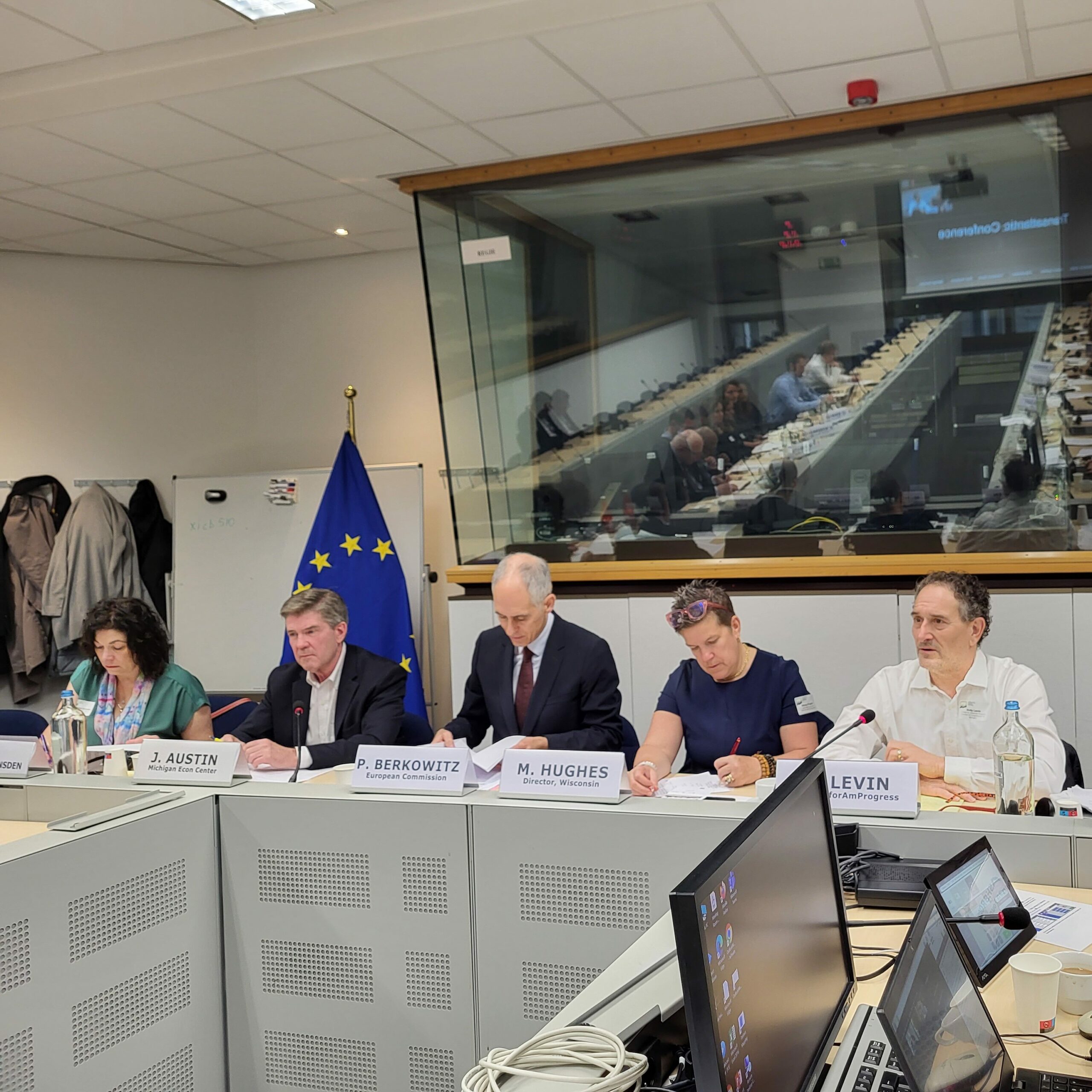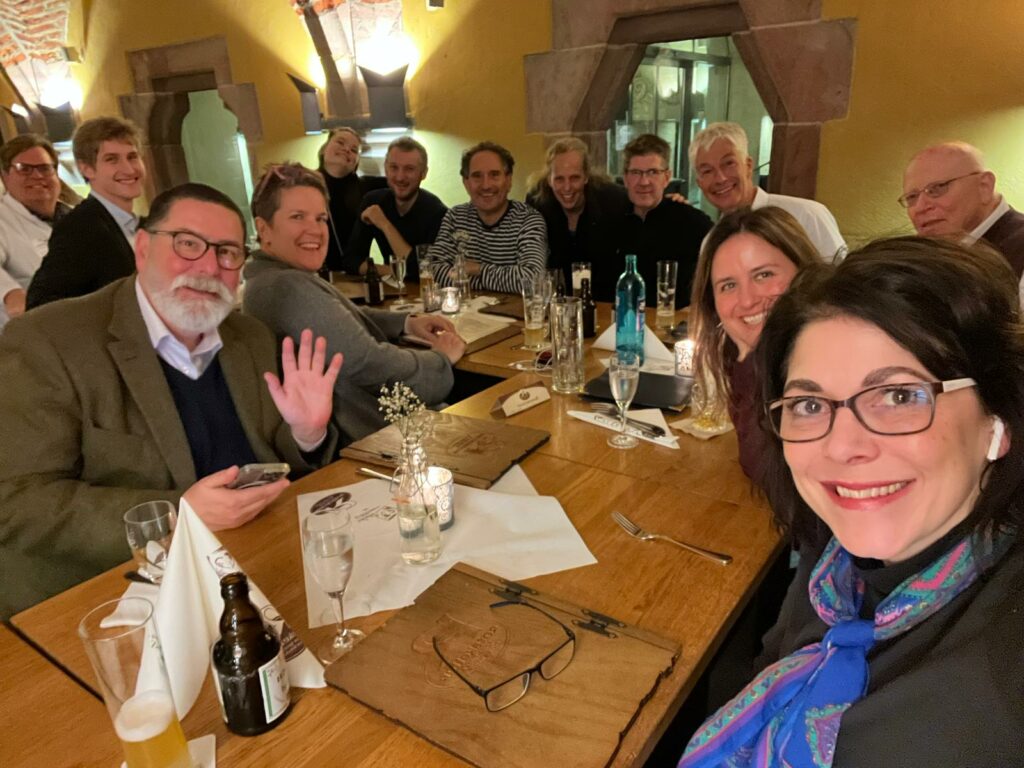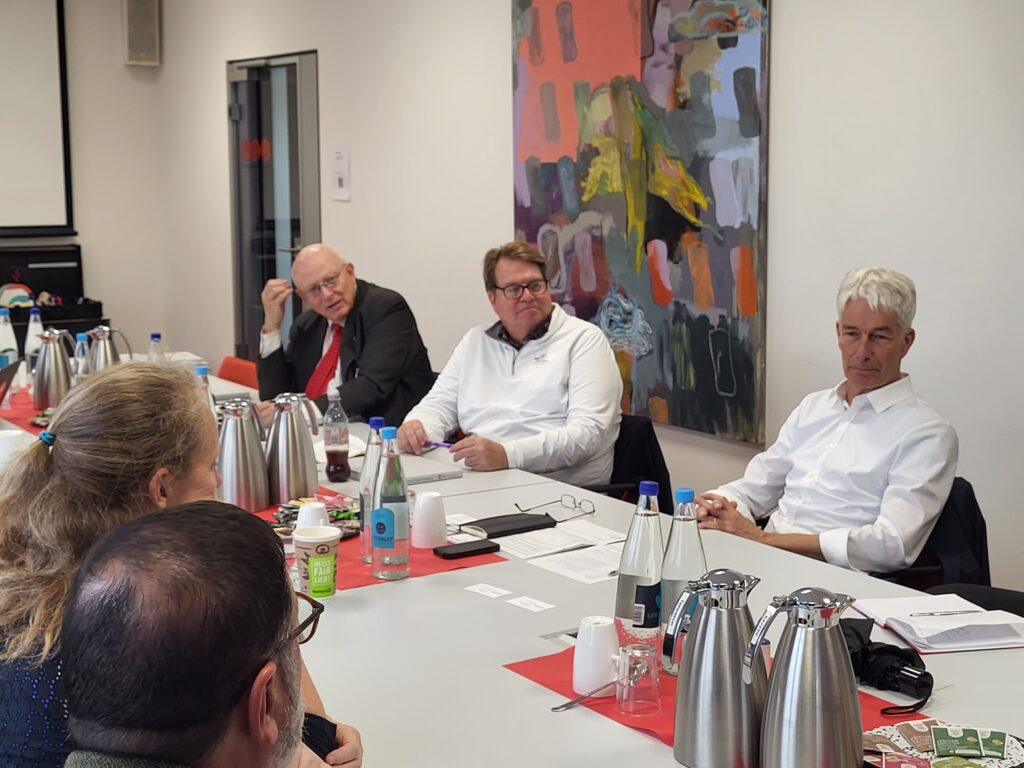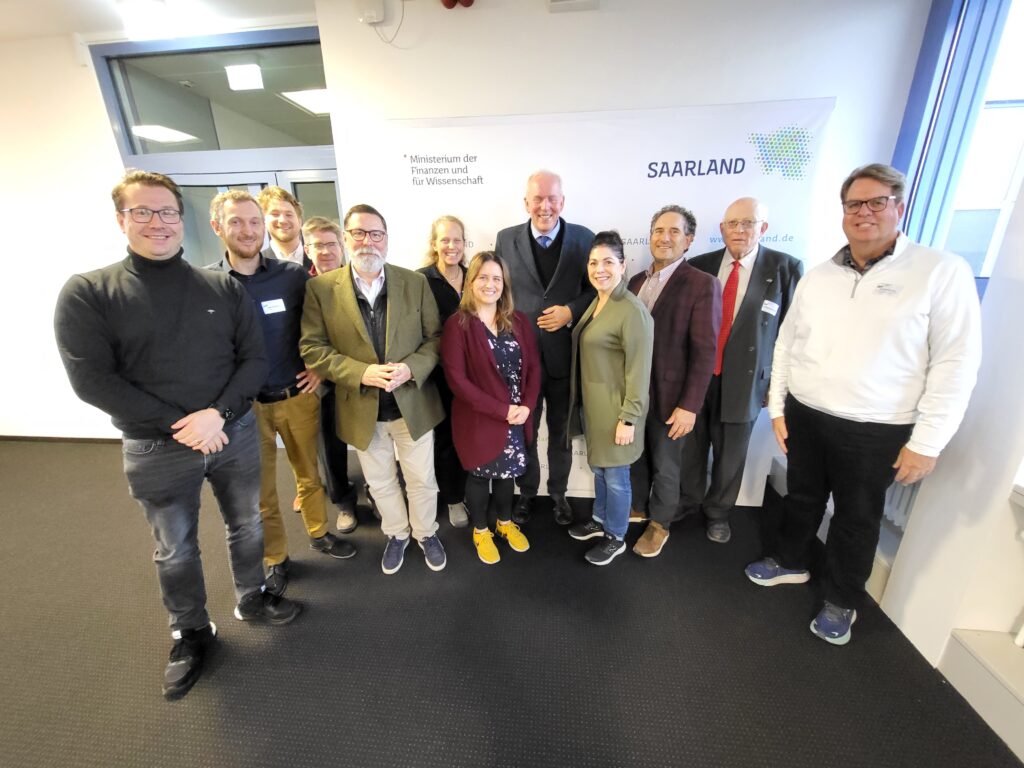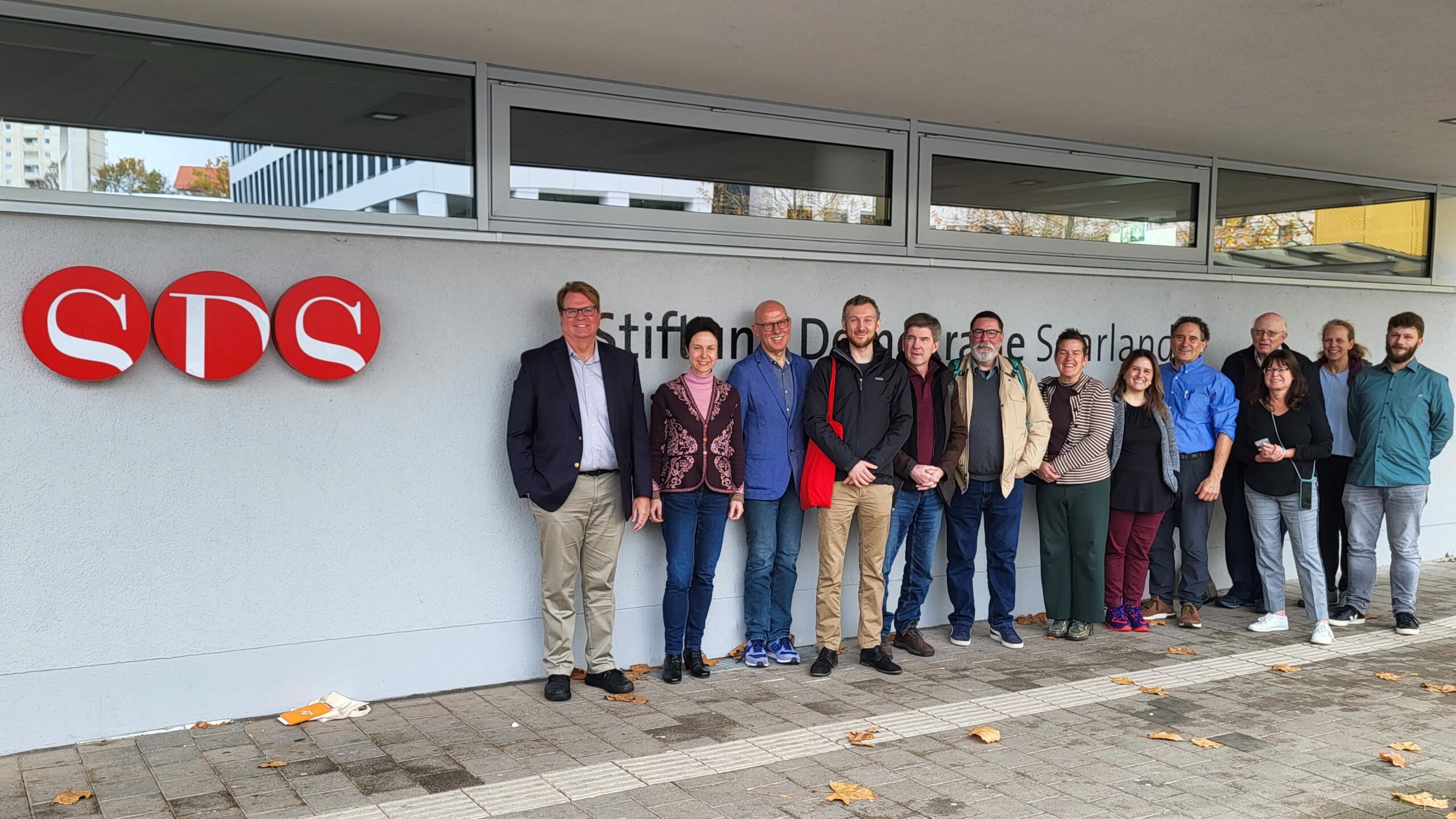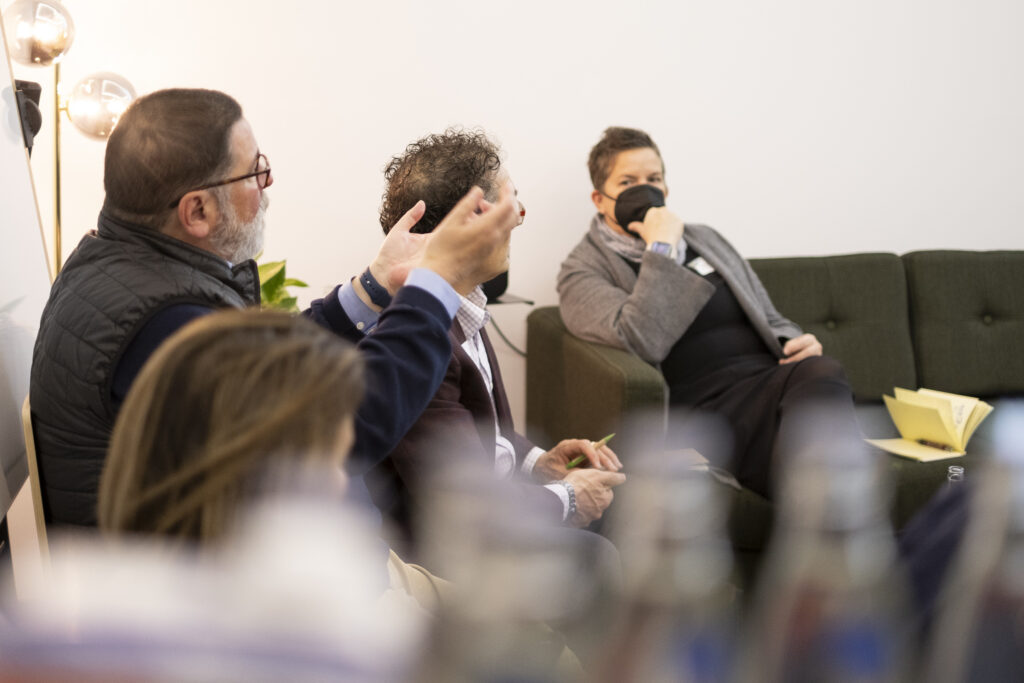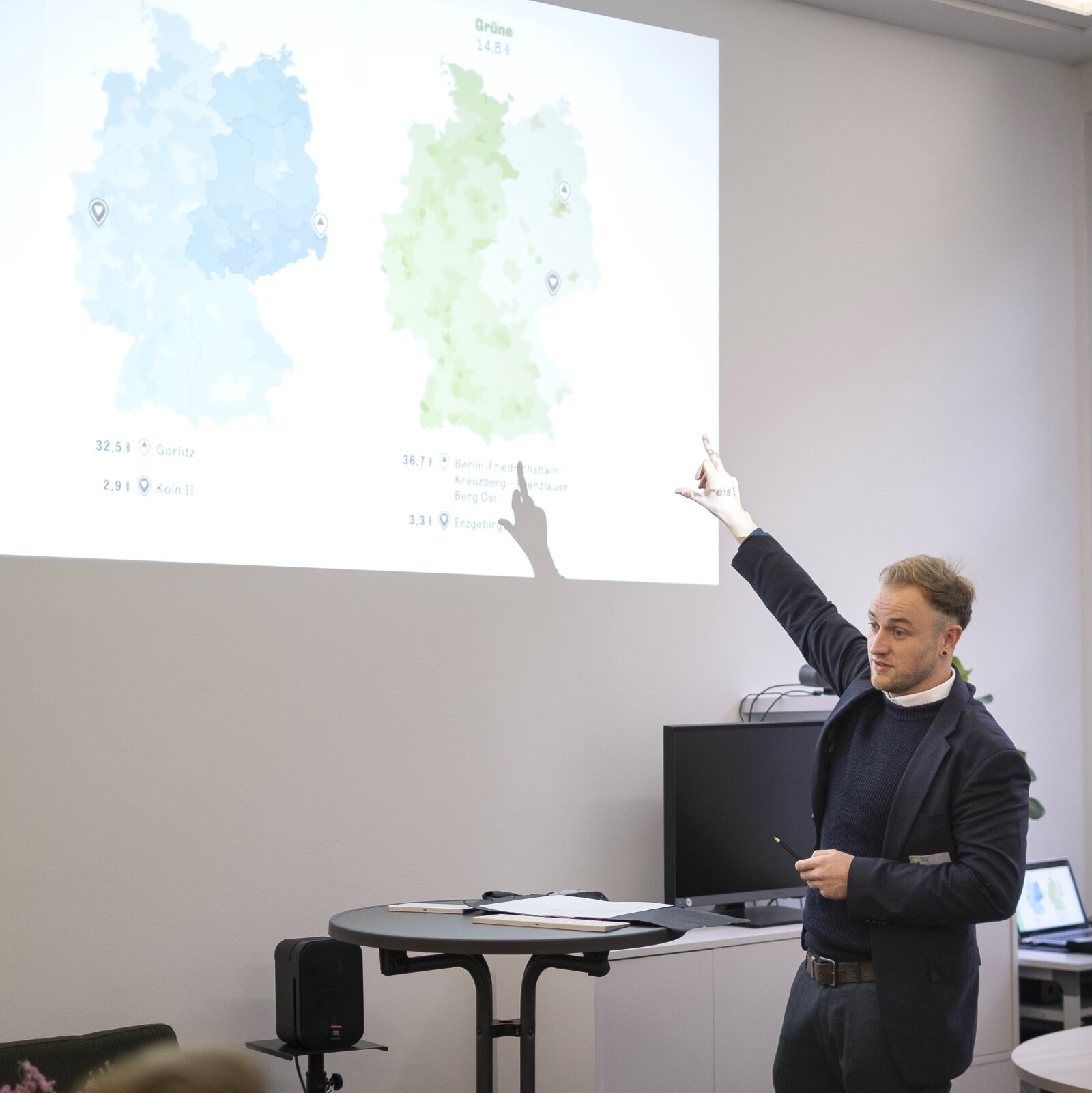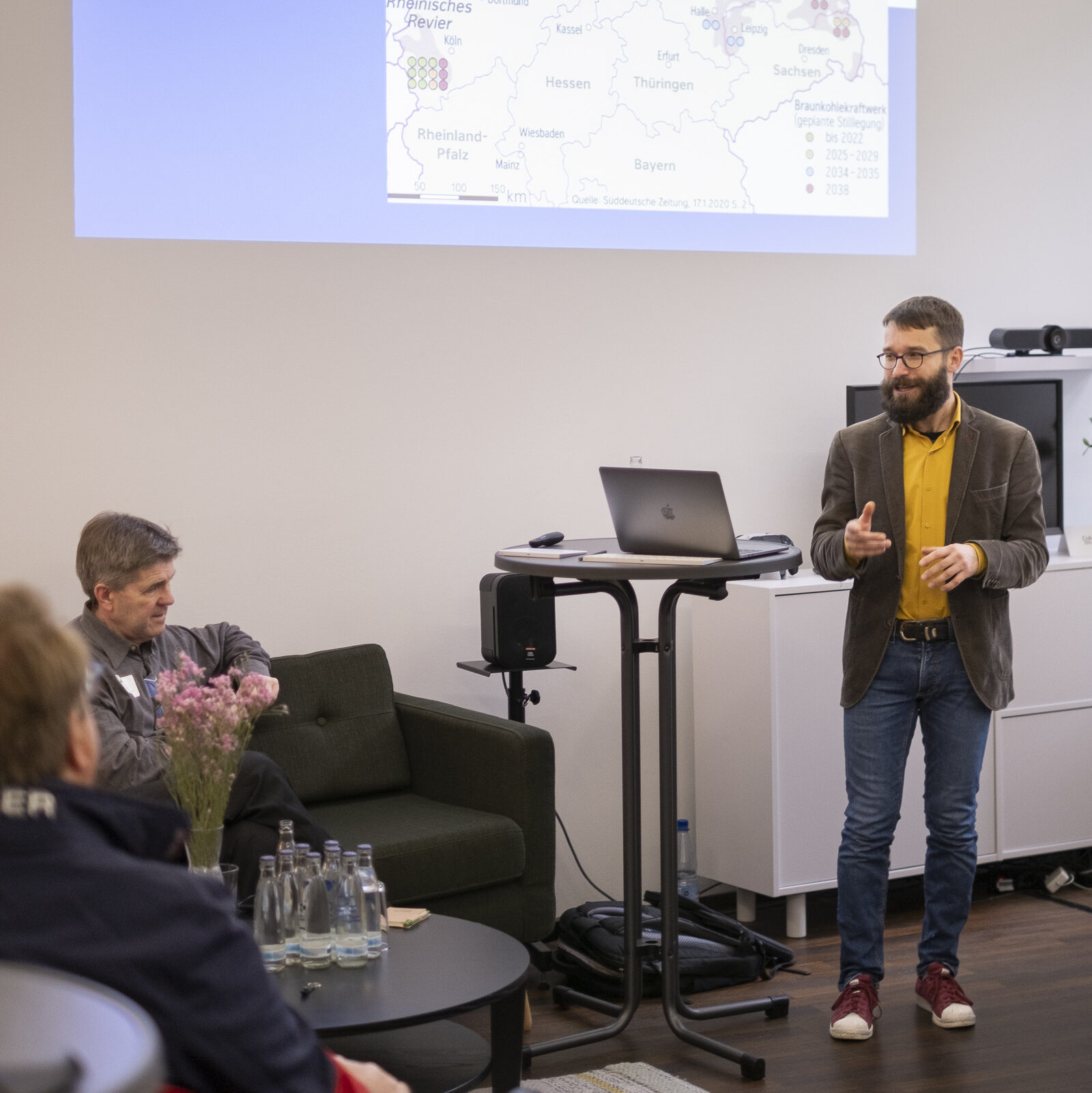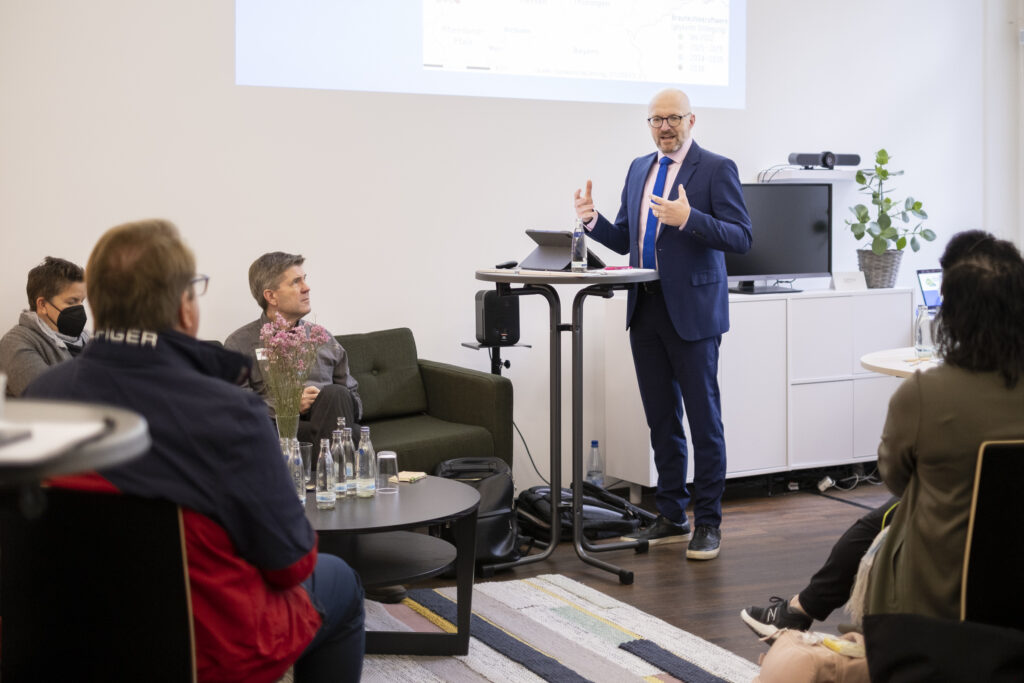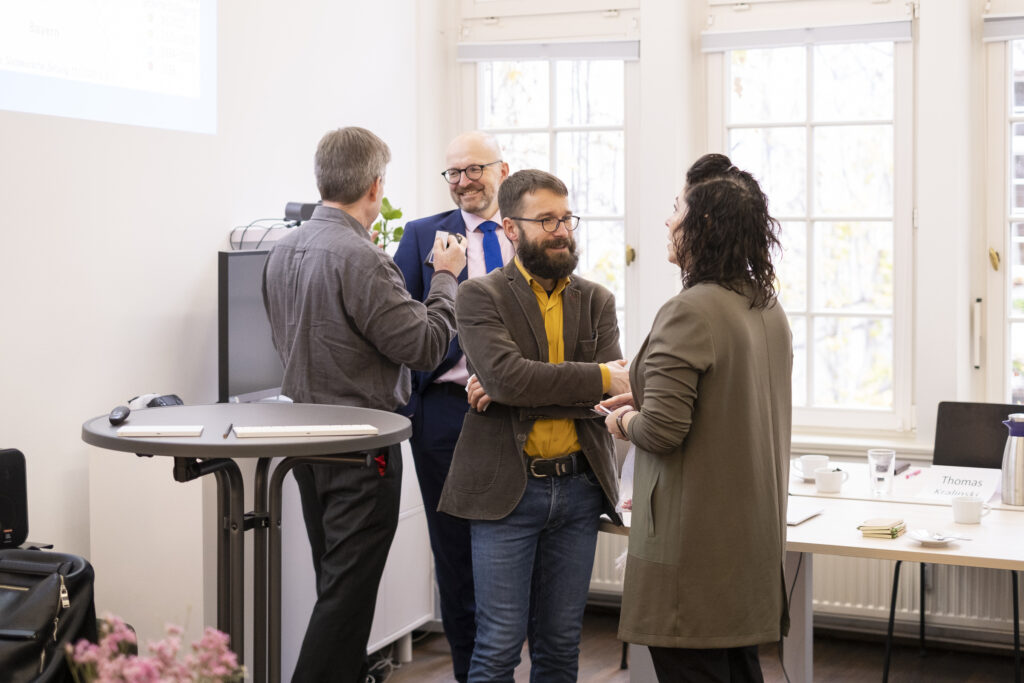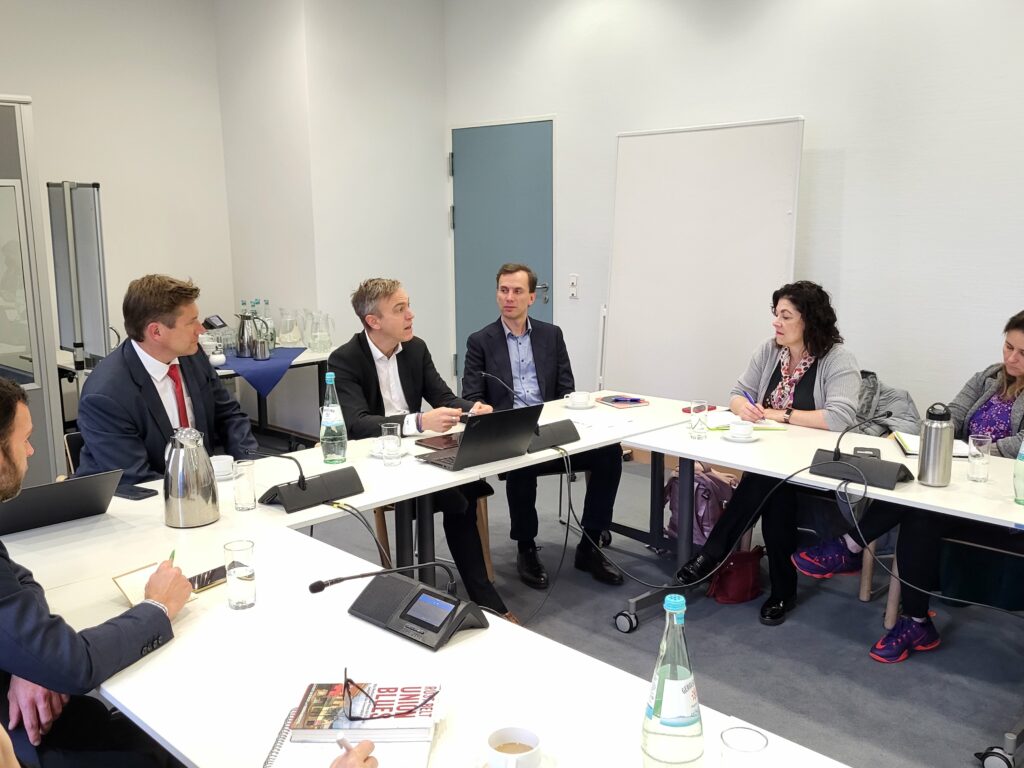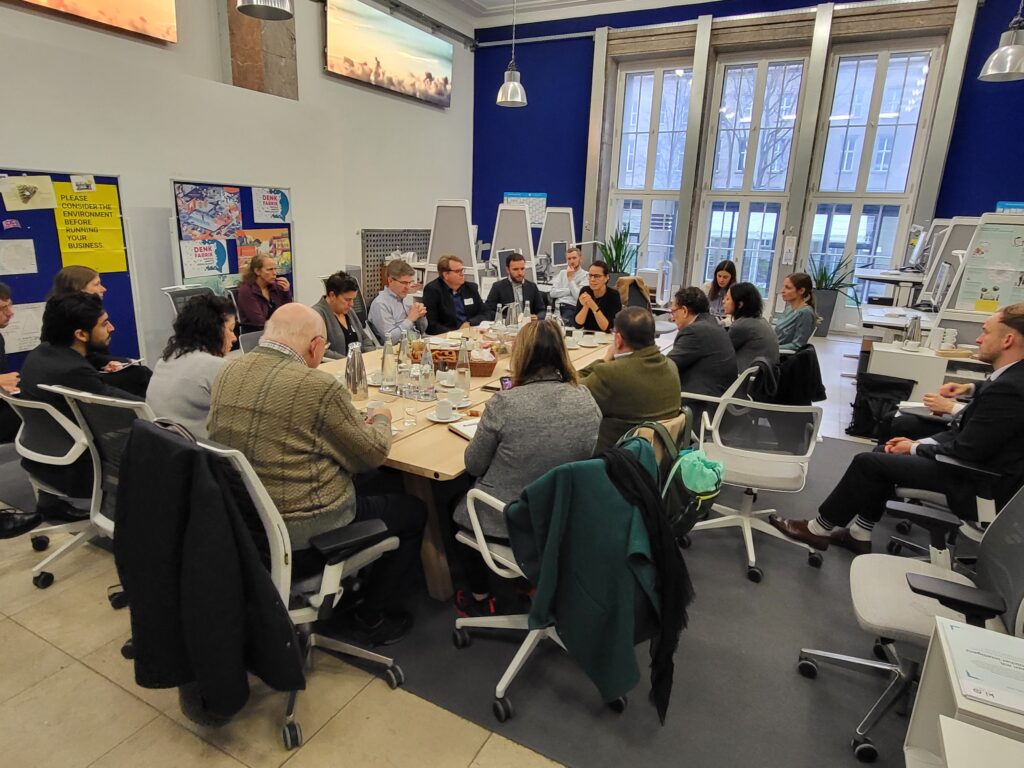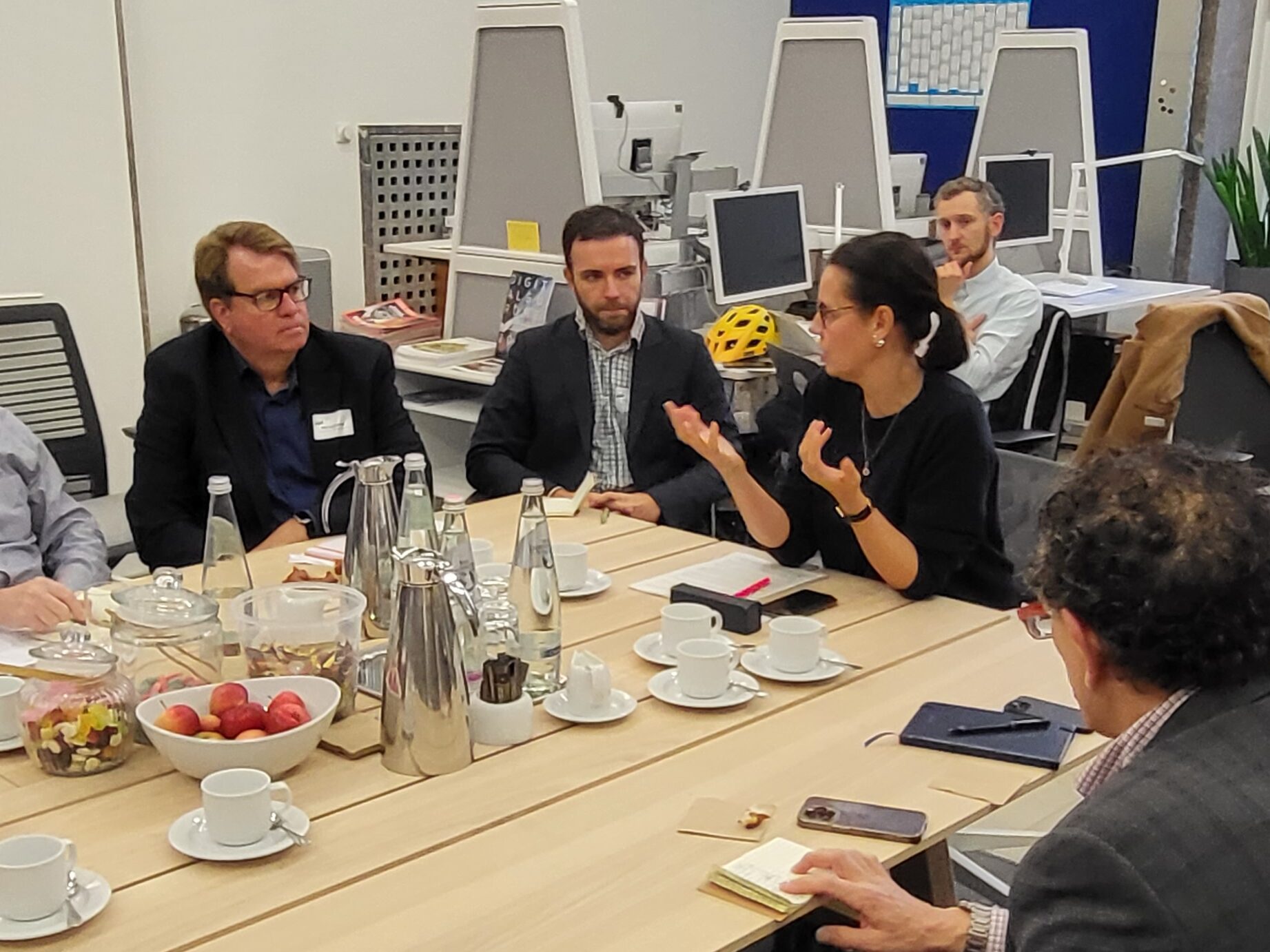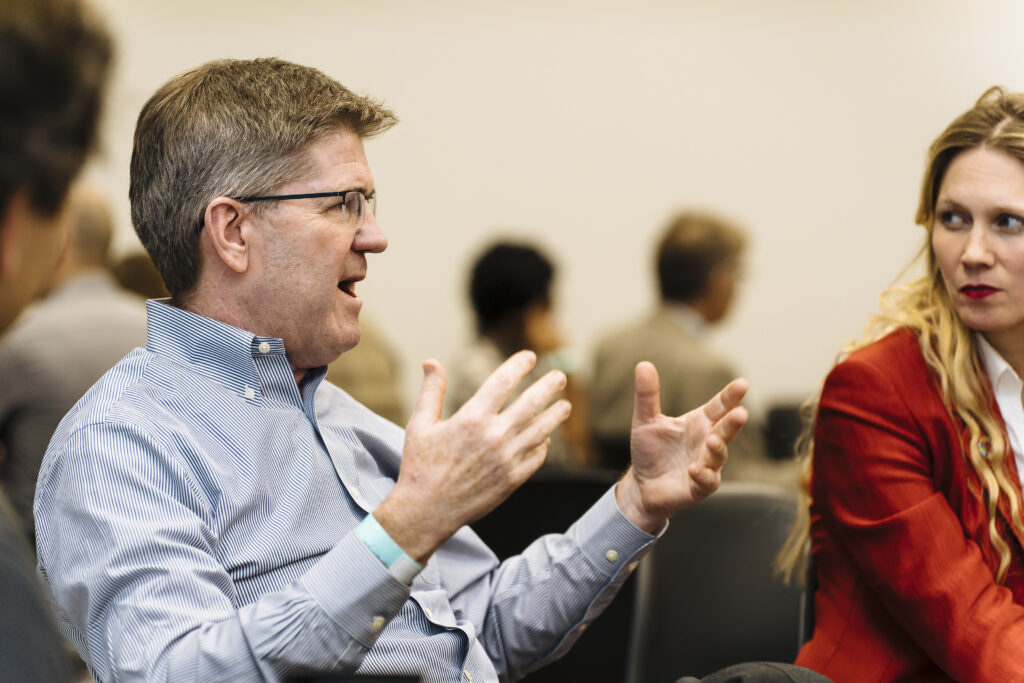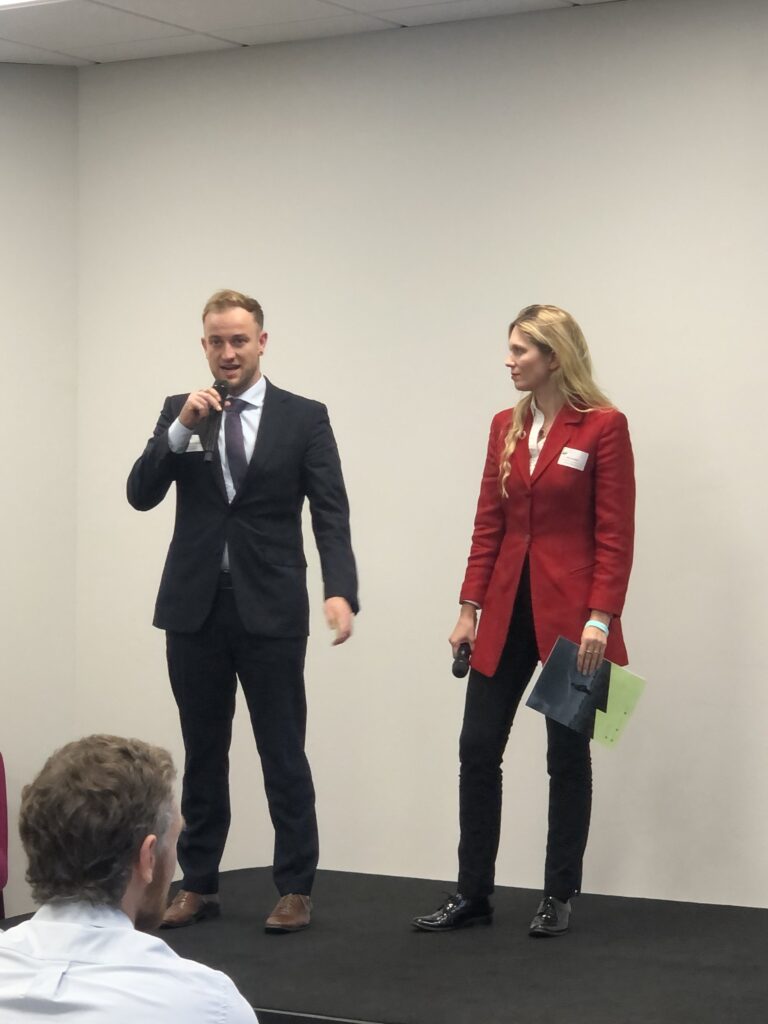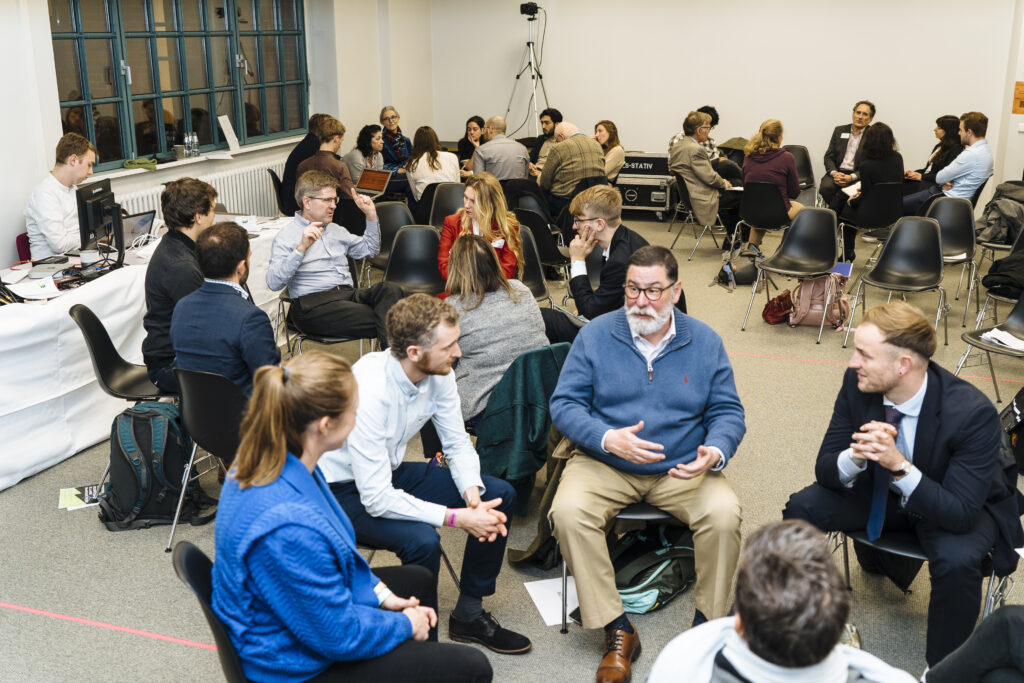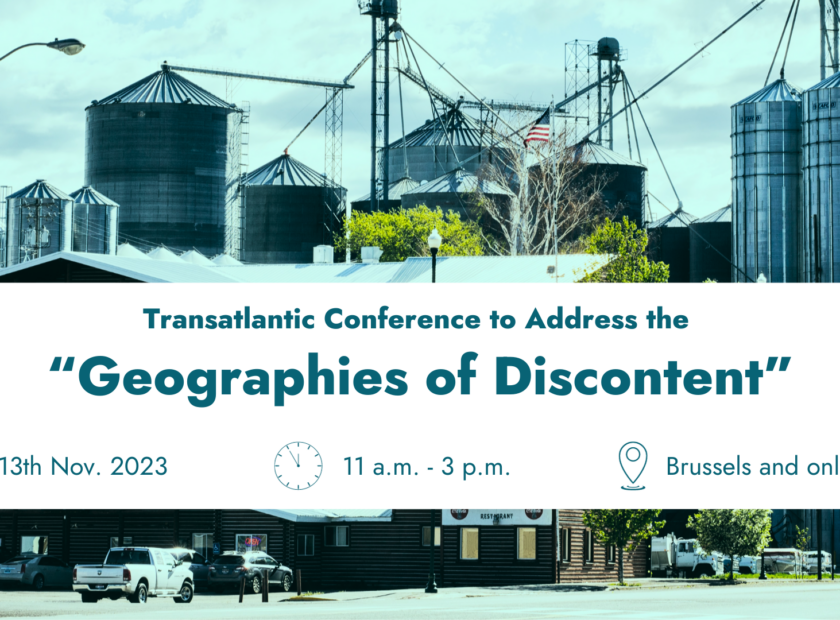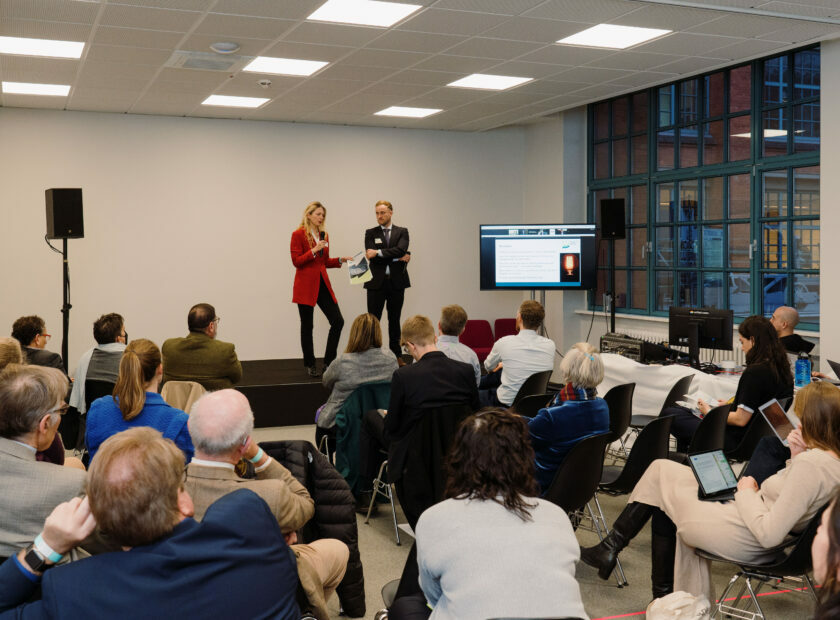Sheboygan to Charleroi, Coal River Valley to Cottbus, US-German Heartland Change-makers Share Lessons at Today’s Carbon Crossroads
Midwestern Leaders Study Tour 2025
Sheboygan to Charleroi, Coal River Valley to Cottbus – US-German Heartland Change-makers Share Lessons at Today’s Carbon Crossroads
Executive Summary
At a time when the transatlantic relationship is eroding under Trump 2.0, cooperation between US and German regions, cities and communities is of vital importance – particularly if momentum on climate change amelioration is to be maintained across democracies in North America and Europe. Local leaders on both sides of the Atlantic remain committed to actually solving global problems such as climate change, economic inequities, and community resident disengagement and disillusionment. As US Midwest elected officials hailing from coal, steel, and manufacturing communities recently criss-crossed Germany, meeting peers facing similar challenges of helping communities and residents successfully adapt to seismic economic structural change and concomitant cultural dislocation. Important insights were gleaned about the future health of our economies and our democracies.
Subnational Diplomacy in Action
A group of Midwest leaders organized by Michigan’s John Austin, coordinator of the Heartlands Transformation Network and current Visiting Fellow at the Academy of International Affairs-NRW – brought their experiences and open minds and ears to Europe last month. This was part of Das Progressive Zentrum’s Transatlantic Heartlands Dialogue project.
Exploring Germany’s industrial heartlands along with Austin were US Midwest elected officials and economic change-and decision-makers Steve Patterson, Anne Mervenne, Kent Smith, Ryan Sorenson, and Martina Guzmán. From deserted villages in the Rhenish mining area, to the heart of the German former coal and steel country in Duisburg and the Ruhr, to Cottbus’ ambitious post-coal transformation path, our delegates met and discussed with local and federal institutions, mayors, innovation hubs, ministries, and civil society actors.
As Athens, Ohio mayor and president of the US National League of Cities Steve Patterson told an international audience at our kickoff event hosted at the Academy of International Affairs in Bonn, Germany: The need and opportunity for strong subnational collaboration and agenda-building is now more important than ever.
Further discussions with our delegates built out the opportunities for peer-to-peer learning and assistance: Whether at our Berlin expert roundtable with former US Special Representative for City and State Diplomacy Amb. Nina Hachigian (ret), meeting with MP Katrin Uhlig, sessions with the youth volunteers at Ruhrpott für Europa – all demonstrated: there are ample subnational channels already in place and ready for expansion. And a huge potential in local actors to reshape transatlantic ties from the ground up.
The delegates saw and forged new opportunities for continued subnational diplomacy working together through emerging networks like Nina Hachigian’s City Hub and Network for Gender Equity (CHANGE) – in the face of US abdication of its leadership role under the current Trump Administration, and German national government uncertainty about climate renewal.
We spoke with Duisburg deputy mayor Dr. Sebastian Ritter, steelworkers representative Can Y. and Duisburg Business & Innovation GmbH leaders about strategies to bring heavy industry transformation, climate protection and quality employment together while facing geo-economic pressure – further intensified by US tariffs.
The group learned how successful transformation is more than new jobs and what role quality of living and recreational areas play in the city’s future from city developer in Cottbus Stefan Simonides-Noack.
Those exchanges showcased how subnational diplomacy is already delivering tangible policy engagement – linking local leaders across borders to drive economic, environmental, and democratic transformation from the ground up.
At the Carbon Crossroads – Which Way Will We Turn?
Our delegates from the US trod familiar terrain among the German coal-mining regions, steel, heavy manufacturing communities that had been the economic powerhouses of former West Germany and the then-GDR East. They all came from regions with similar industrial background: The heart of coal country on the banks of the Big Coal River in West Virginia; Detroit, the iconic capital of autos and the arsenal of democracy; steel and oil centre Cleveland and Sheboygan, Wisconsin – a manufacturing and port city just up the Lake Michigan shoreline from Milwaukee, once the machine tool capital of the world. The challenges facing Rhenish region & Cottbus were familiar – where local leaders were working hard to forge affirmative post-coal futures.
In the brown coal mining area along the Rhenish mining area in Germany’s West, whose coal and workers had powered the industrial engine that had been Germany’s Ruhr, we visited huge coal pits and deserted villages – evacuated in front of the proposed path for coal mining by energy giant RWE’s. We heard from residents who resisted the pressure to leave and watched their home turning to ghost-villages. Today, the decades-long advance of the giant digging machines clawing coal of colossal pit mines – gobbling up whole German villages in the process – was grinding to a halt. Protesters from around Germany and Europe more than a dozen years ago had joined handfuls of villagers determined to remain in their homes, protesting and trying to halt the mine’s relentless advance.
But it was Europe’s recent years’ embrace of the Green New Deal, and Germany’s national decisions to end lignite coal mining and embrace renewable energy, that had meant a last-minute reprieve for Keyenberg and other villages – too late for others that had already been clawed underground. The families and farmers’ houses in lost villages had been bought up by the energy company, which paid for their moves and new houses, but to nearby cities and villages decoupled from their past, their neighbours, their community.
But now with changes in governments, ever-changing energy policies and whipsawing political dynamics in Germany, Europe, and beyond second guessing the need for the great “green” transformation, would the truce hold?
At the Thyssenkrupp steel plant in Duisburg, we got a close look at the German steel crisis and steels own “carbon crossroads” – with the future of the industry and thousands of jobs in play. We toured the massive ThyssenKrupp steel company itself, representing the merger of two competing German former Steel titans desperately trying now to compete versus foreign steel. The Duisburg complex is in the vanguard of German and European efforts to make the big move to “green” steel. But talking to management and workers we learned declining demand for automobile steel and the job-reducing technological changes in making the green transition were now bringing the threat of significant layoffs and creating an impasse with the workers union over their own and the giant plant’s future.
Back home in America, Nippon’s Steel’s off again, on again plan to purchase Pittsburgh based US Steel had just gone through now that election winds had subsided. It promised a competitive future for Pittsburgh’s industry icon via modernization, and new investment. Or did it?
On the other side of Germany, in Cottbus – deep in the former GDR (and today a centre of spiking support for the far right AfD party) – we found a mirror community to the soft-coal mining region of Germany’s west. We stood in front of what the Rhenish mining pits may one day become: The Cottbus Ostsee, a former open-pit lignite mine turned into a vast lake.
Here mining had been halted, the massive power plant looming in the distance was slated to close, and the giant pit had been filled with diverted river water to make a colossal new man-made lake (also being contemplated in the West with diverted Rhine river water to fill the Rhenish mining areas’ vast pits). But the city’s current plan to remake Cottbus from a coal-mining town to a waterside-lifestyle community was being thwarted by the former pit walls (now waterfronts) constantly crumbling – halting development, at least for now.
It was eerily similar to the situation in coal country in the US: The rounds of extractive industry boom, then bust, then search for a different clean energy future – then whipsawing promises from leaders to “bring back coal” and the past (at least now under the Trump Administration) – that our US Midwest communities leaders and their communities have experienced.
The Germans we visited with, like the farmer Norbert Winzen, who with his extended family were practically the last citizens left in living in (town), were feeling the same carbon and climate change whipsaw. Resigned to their village being subsumed in the pit of the coal-mining and fossil fuel business inertia – they’d managed to ignore the objections of Germany’s famous historic farm-preservation-in-amber bureaucracy, and power up their farm compound with newly installed solar panels in what they thought was a last act of symbolic statement-making and defiance.
Now the farm and the village was spared by the sudden imperative for Germany and Europe to go green – a move seemingly eagerly embraced by the rhetoric on the RWE-energy sponsored placards and explanatory panels placed on the lip of the (still-working) massive Garzweiler open pit mine – to explain what they were seeing for the many visitors and gawkers who came visit this awe-inspiring monument to the carbon economy.
Or was Keyenberg really finally to be spared? Russia’s invasion of Ukraine had forced Germany’s fast retreat from Russian gas and oil. Did Germany and Europe still need some coal and carbon based energy to keep Germany’s manufacturing economy going?
Similarly back home: The head-turning pivot from green, clean energy leadership offered by the now turned out Biden-Harris Administration to “MAGA-red” had turned upside down the future economy-building table we all were playing on in the still struggling and transitioning communities of Middle America.
Now denizens of towns along the Ohio River Valley which several of our Midwest leaders delegation leaders called home were feeling the jerk of the US’ on-again-off-again push towards a carbon free economy – seeing the first Trump Administration abandoning US climate agreements, the Biden Administration and their own local efforts then putting pedal to the metal on “going green”. Leaders like Mayor Patterson had led the charge Now Trump II pulling the plug again and holding up the nostalgic chimera of a return to a fossil-fuel based economic boom-time for his voters.
Both the US and German communities and their leaders were moving through the same cycle of economic and cultural dislocation – local leaders working hard to treat and build better lives and new opportunities for residents along the coal country and industrial corridors of the US Ohio River Valley, and Germany’s Rhine, Ruhr and Lusatia regions. Supported one day, then undercut by changes in national leadership and prevailing political winds.
From Alienation to Climate Action
Navigating these “carbon crosscurrents” to create meaningful new economic opportunity for similar regions across our countries is a huge shared challenge, as it involves strong emotions and feelings of identity, alienation and anger – that if not treated now manifests in ethnonationalist resentment driven populist movements. Understanding, and engaging effectively with resident in regions undergoing seismic changes is aided enormously by the kinds of new insights gathered on the delegation’s trip, opening a window onto the lived experience of community residents, and the lessons in what works – and what does not.
Manufacturing and Coal-country residents of Michigan, Cleveland, West Virginia and Western Pennsylvania felt immense pride in their work and contributions to the economic power of their nations. There is tremendous nostalgia in Detroit and Flint, Pittsburgh and the Big Coal River Valley for the time of good-paying jobs and lively communities. There is anger and frustration that those jobs and way of life are diminished– and anger at those outsiders who tell them “you need to change.”
We found much the same feelings – particularly in the East – where residents had gone through such a disorienting economic and cultural seismic change after reunification. Community residents under the GDR, while not appreciating being told what they could do and where they could live by state directive, enjoyed once-secure jobs and were proud of the fact that they were the coal and energy-producing economic powerhouse of the former East. But now with such high hopes for a new life after the Berlin Wall fell and reunification, instead they had experienced disorienting economic and social dislocations. There was investment and a rebuilding, yes, but controlled by West Germany money and directive, leaving residents feeling powerless. Today, there was little faith in the latest big “plan” for economic transformation. As one community leader put it: “In public, the residents will nod and make nice comments about our current economic regeneration plan. But talking themselves, they will say, ‘what a bunch of garbage.’”
At several stops on the road, Athens Mayor Patterson, part of a band of Ohio-River Coal Country Mayors banding together to promote a clean-energy headed Marshall Plan for Middle America, shared stories of some steps toward success working at the local level: His own work in Athens, Ohio Athens, to engage the community in new ways, in “reimagining” their municipality. “In Athens, we came together […] to reimagine our community – 76 percent of residents voted to pass a ballot initiative to pay for retrofitting the whole community for clean energy and sustainable systems. In so doing, bringing a new and different form of manufacturing back.” Or his fellow Mayor in Huntington, West Virginia, sparking new battery manufacturing, bringing 350 new jobs for people displaced from the coal industry.
These Mayors are working hard with other leaders in the region to move past the nostalgia for the coal and heavy industry boom town years in so many communities – to chart a course to use new clean energy opportunities for community growth and renewal – Austin had just returned from sharing similar examples from international heartlands transformation work around how similarly-situated older industrial communities chart a new, brighter path in another coal country community – to economic development officials in the abandoned mines and coal camps in Durham and England’s North the historic Red Hills Miners Hall.
There are not one but many paths to new economic opportunities for similarly situated transitioning economic regions. These paths for new prosperity must be locally developed, owned, and operated. It does not work – as we saw in Cottbus, to be “done to” – to have development directed from outside. Success must be built on communities’ identities and whatever local assets each community has to work with: whether it is the making of things, or natural location (such as waterfronts), or reputation as committed to education or innovation; or arts, heritage and culture, or leveraging the formidable economic power of research (learning institutions and universities).
The Way Forward
Our visit left us with some a hopeful notes. The village Keyenberg was already planning its hosting in 2037 of the “Bundesgartenschau” (biennial German federal horticulture show) that would bring 20,000 visitors from across Europe to the streets and farm courtyards of Keyenberg.
The German Ministry of Economy – despite the new Conservative dominated coalition government removing the term Climate from its name – was still spending millions of Euros to support the regeneration of coal country regions and to aid the ongoing great green transformation.
The US mayors and delegates in tow noted the fact that the combined GDP of the states and cities in the US committed to maintain a green transformation dwarfed those following the Trump Administration’s efforts to roll back climate policy by 2:1. US leaders on the trip saw new promise in linking arms and sharing ideas with peer leaders at the level below the national government – and continuing to press on with strategies for climate change amelioration and coal and heavy industry region transformation.
The delegation took inspiration from Dr. Manfred Körber in the Rhenish mining area at the self-organised Café Nr. 5., a new community meeting ground for remaining village residents, newcomers wanting to be part of the village’s future story, as well as farmers that remained but also those who had moved. Providing a space to come together in a refurbished barn and chicken coop, have a meal, find common ground and plot a new brighter shared future for their community.
It was a place, as Körber told the group: For those who had been demonstrators against the energy company, as well as those who had been accommodators, to come together – to move from a place on the brink of vanishing to a space of co-reation, renewal and hope.
About the Authors
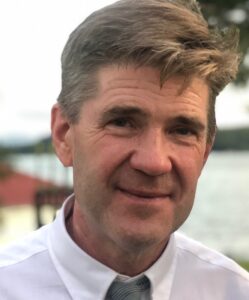
John Austin is a Senior Fellow with the Eisenhower Institute at Gettysburg College (EI) leading the organizations’ work on international economy-building and democracy strengthening. Austin has created and facilitates impactful international partnerships and initiatives, including the transatlantic Transforming Industrial Heartlands Initiative, partnerships to promote and implement allyshoring; along with international collaborations to help democracies maintain global innovation and economic leadership. Austin also serves as a Non-Resident Senior Fellow with the Brookings Institution where for over twenty years he has led efforts to support economic transformation in the American Midwest and in the industrial heartlands of Western democracies.
About the Initiative
The Heartlands Transformation Network is a transatlantic collaborative partnership dedicated towards closing geographic economic divides and reconnecting residents of rural and former industrial heartland communities to economic opportunity. The initiative works to return community pride and optimism about the future, and diminish the appeal of polarizing, resentment-driven, isolationist and ethnonationalist political movements that threaten our democracies.
The initiative, its learning exchanges, convenings, events, study tours, presentations, publications, and other learning products, are conducted with partners including the Eisenhower Institute at Gettysburg College; the Brookings Institution; the Georgetown University BMW Center for German and European Studies; the Jefferson Educational Society; Das Progressive Zentrum; the Ruhrkonferenz of North-Rhine Westphalia; Policy Manchester at the University of Manchester, U.K.; the University Allianz Ruhr; the German Consulate General in Chicago; the European Commission Directorate of Regional and Urban Policy; and the Committee of the Regions of the European Union, among others.
Learn more about the Network and join in its activities here.

